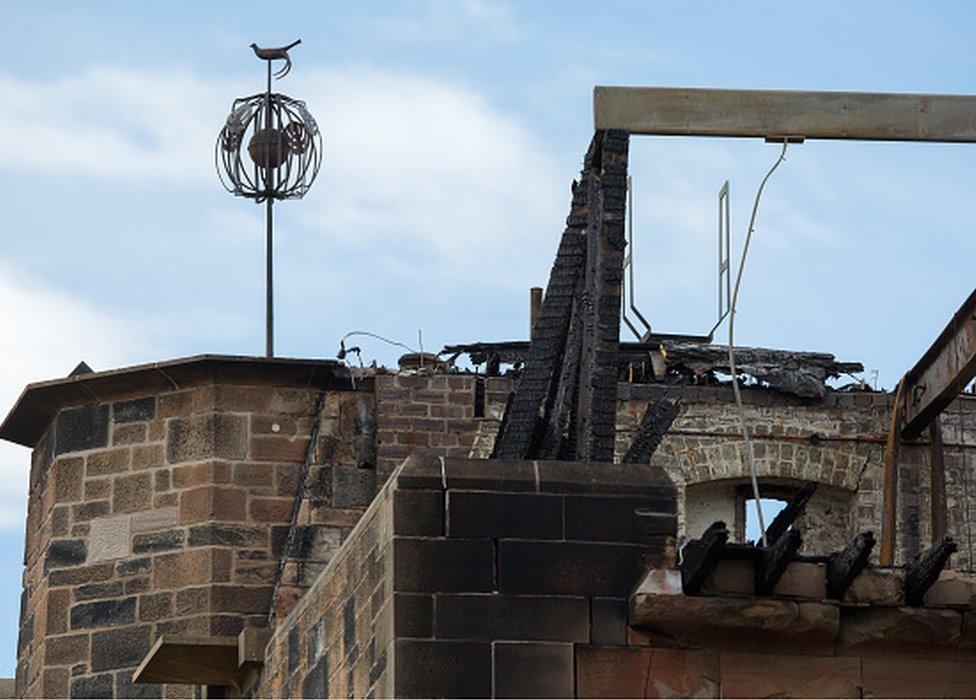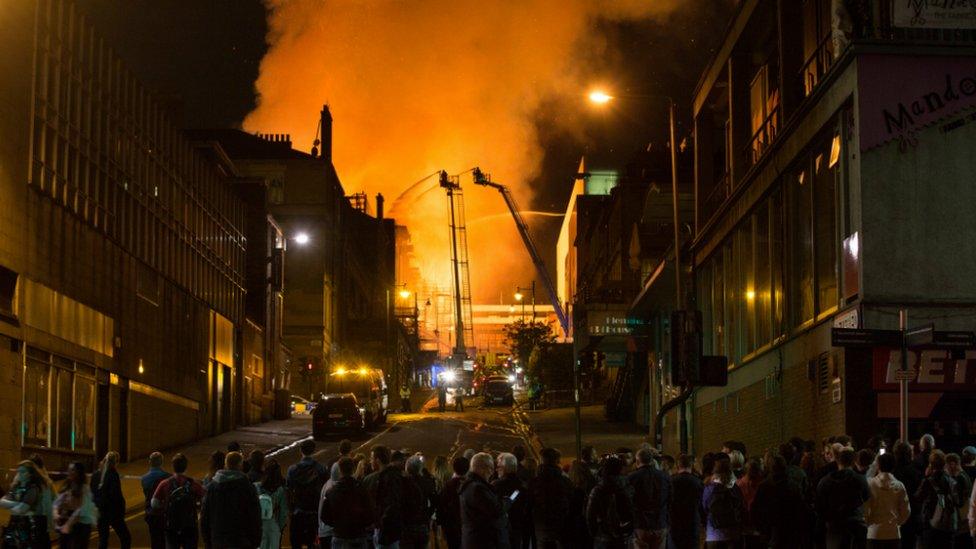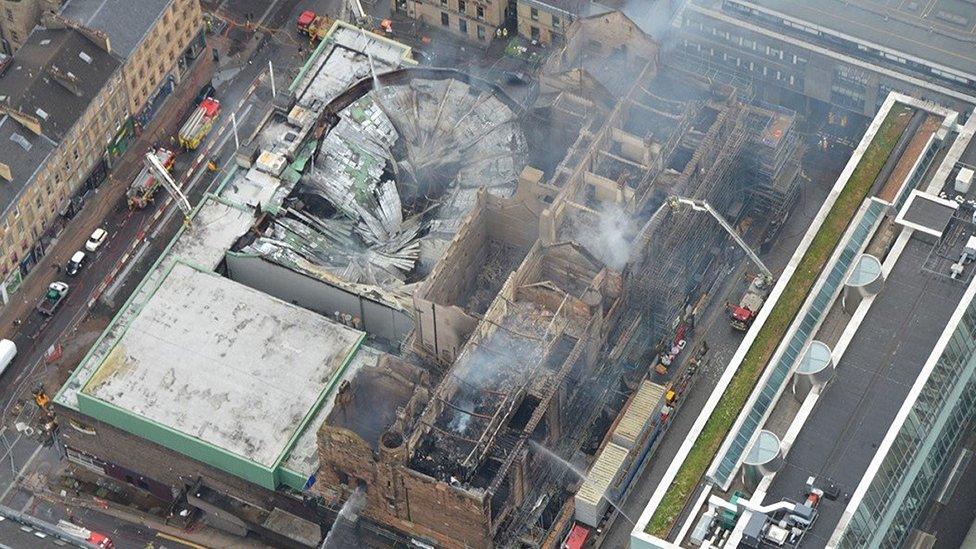What now for the Mackintosh building?
- Published

The council has warned about the dangers of falling bricks or stonework from the site
The fire-damaged Glasgow School of Art Mackintosh building is to be "partially dismantled" after latest inspections revealed structural damage was worse than thought. So is it the end for the "Mack"?

'A giant jigsaw' - Prof Miles Glendinning, director of the Scottish Centre for Conservation Studies
He believes the building can still be saved - but it can be taken apart like a giant jigsaw.
Each stone removed from the charred building would be individually numbered in the hope that it could be reused.
He said: "I think it is probably quite prudent to remove any bits that are in danger of collapse.
"If anything collapses then the stonework will be damaged.
"This (way) makes it much easier to deconstruct."

Large crowds gathered and looked on as firefighters tackled the blaze
The Edinburgh College of Art academic said such a technique was used to rebuild the Dresden Frauenkirche, which was left a ruin by Allied bombers during World War Two.
It has also been used on parts of the Acropolis in Greece.
Prof Glendinning said: "It hasn't really been used for 19th or 20th Century buildings but I can't see why not.
"It's just really a financial issue."
Describing the current situation facing the Mack, Prof Glendinning added: "It is like a jigsaw and the advantage is that the finished jigsaw is there at the moment.
"They will be taking part of a finished jigsaw to pieces with the aim of putting it together again.
"It will be a long and complicated project."
He said the 3D model of the whole building, prepared by Historic Scotland after the 2014 fire, will be invaluable.

'Fraught with risks' - Prof Billy Hare, deputy director of the BEAM Research Centre at Glasgow Caledonian University.
He believes the architectural significance of the Mackintosh building means every effort will be made to save it.
"If it had been any other building that would not be happening now," he said.
"No-one wants to put their career on the line by giving the order to completely demolish it."
The first stage in the dismantling process is technically known as facade retention.

The art school and nearby O2 building were gutted by fire on 15 June
It is likely that steel trusses and concrete ballasts will be used to secure the Mack, which was left devastated after the fire on 15 June.
Prof Hare said experts will have to guard against "unintentional collapse" throughout this process.
He added: "Some of it could collapse inwards. It is fraught with risks."
The academic estimates it could take six months to complete the process. In the longer-term, a rebuild could cost up to £100m while the bill could rise to more than £200m if the green light is given for a complete restoration.
Prof Hare based his £200m figure on the £500m restoration of the Berlin City Palace, which is much larger than the Mack.

'Always expected' - Labour MP Paul Sweeney, director of the Glasgow Building Preservation Trust.
While the new evidence of extensive damage is disappointing, he believes the partial dismantling of the building is the right way forward.
He tweeted: "This partial deconstruction of the Glasgow School of Art will be done in a controlled and forensic way and is the best way to enable the structure to be consolidated and stabilised for faithful reconstruction and restoration using completely accurate digital scan records.
"Indeed I saw visible movement and spalling of the stonework in sections of the facade - particularly the south side and north east corner gable - when I visited the site on the night after the fire.
"Given the intensity of the fire and the effect this heat has had on the integrity of the stonework, especially on the west library frontage it was always expected that partial deconstruction and stabilisation of parts of the outer walls would be necessary."

'Must be rebuilt' - Turner Prize winning sculptor Martin Boyce
There have been suggestions that the Mack is too far gone to rise again from the ashes - but he believes the iconic building must be preserved.
Speaking to Frieze.com, external, he said: "Over the last week I have heard people speaking on Mackintosh's behalf, I've heard the terms 'replication' and 'Disneyfication'.
"There has been talk of an opportunity for a new architectural response to this traumatic event.
"There is a strange vanity to the idea that this moment could be an opportunity for new architecture."
Mr Boyce added: "The fire has no meaning or significance, it's not a sign of anything.
"We have an architect and a building and it's one of the greatest.
"It is crystal clear to me that the building must be rebuilt.
"This moment, the fires and the voices around this issue are just a blip in history.
"What matters is that in 20 or 50 years from now people can push open those swing doors, walk in and study art in the Mack.
- Published28 June 2018
